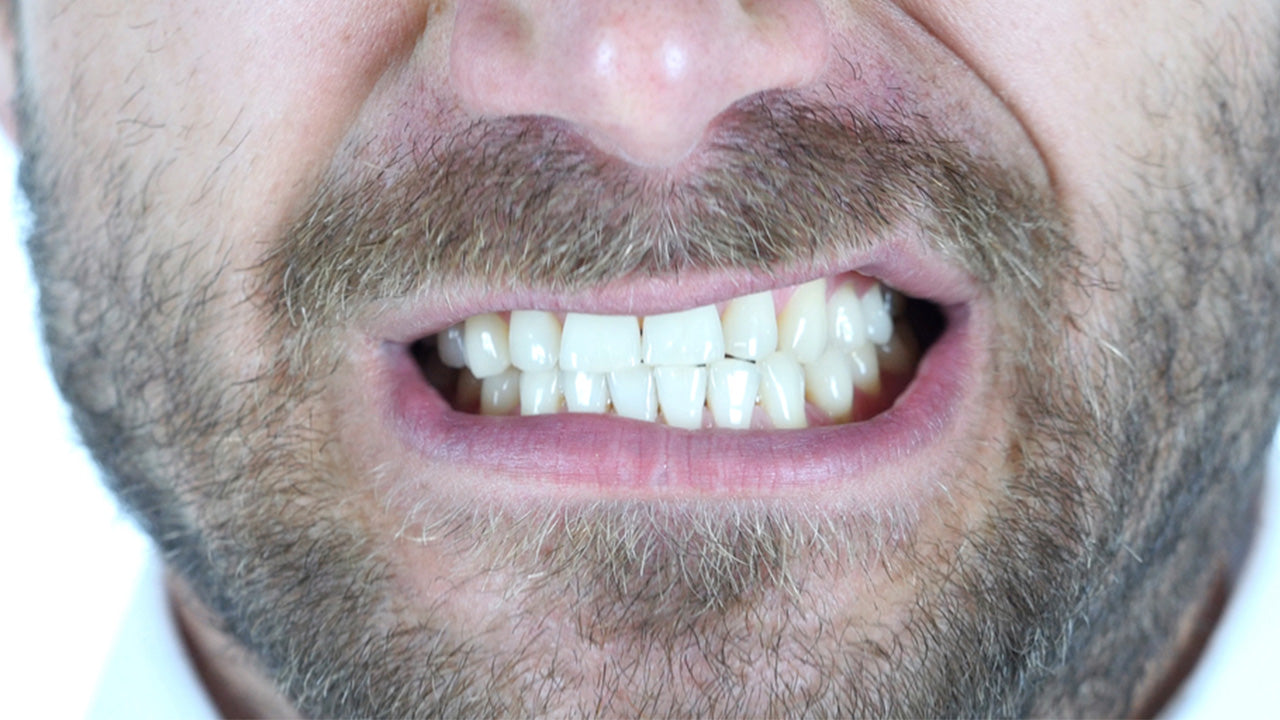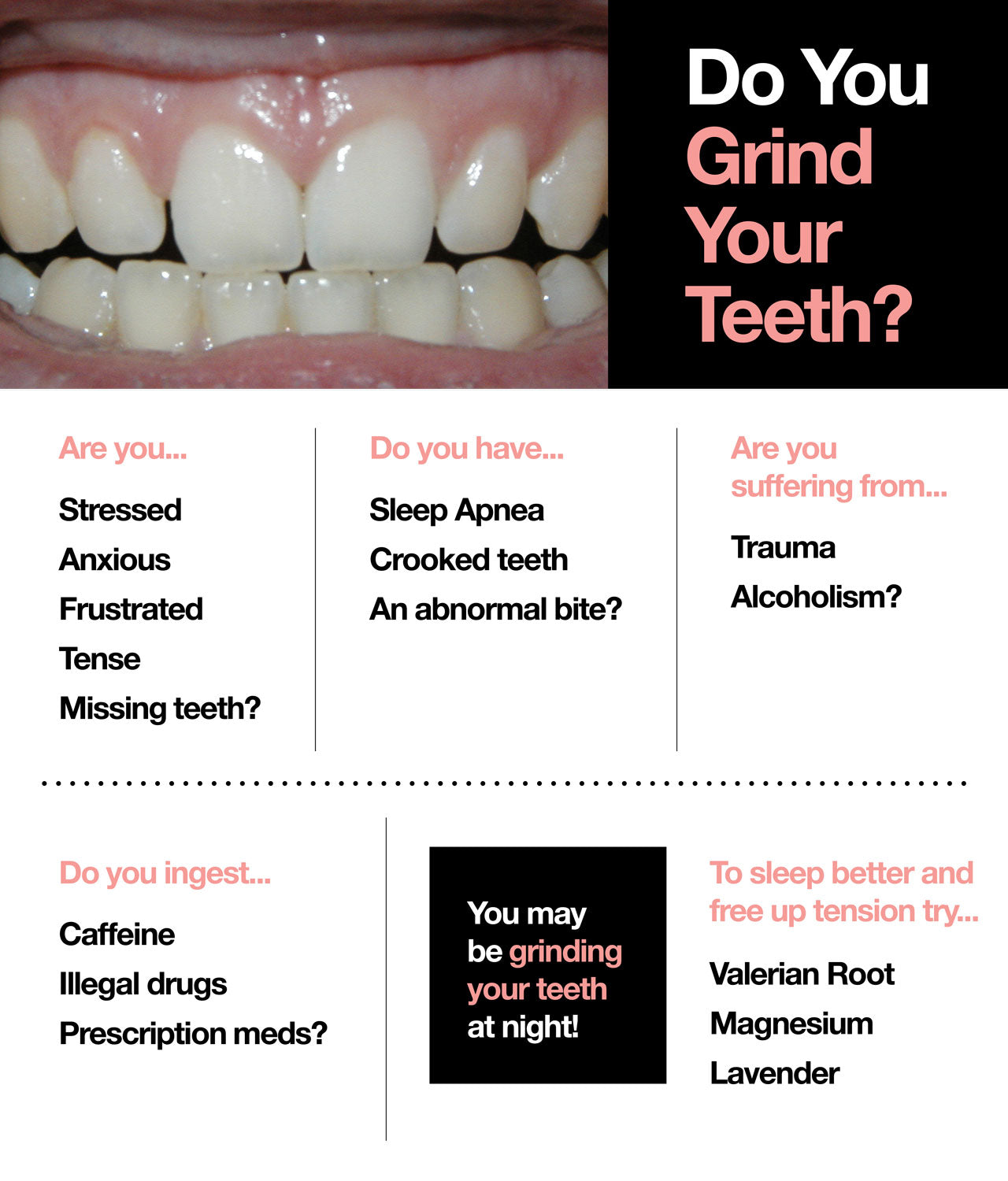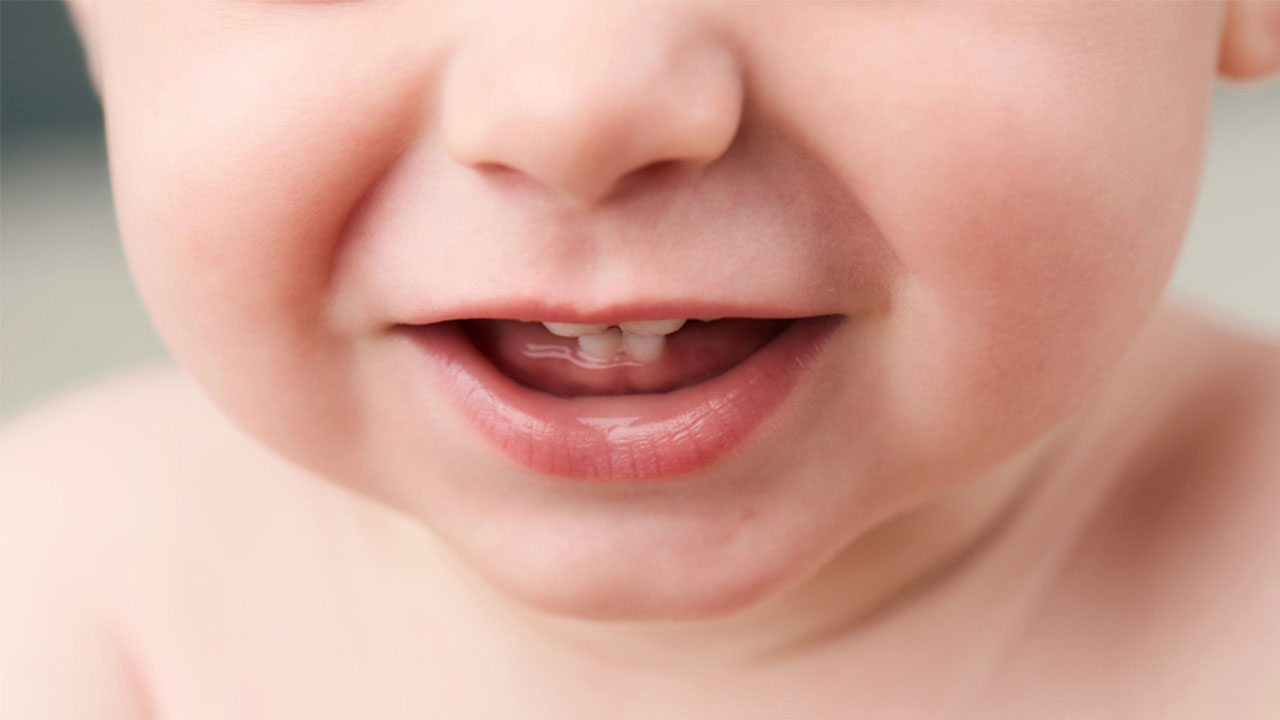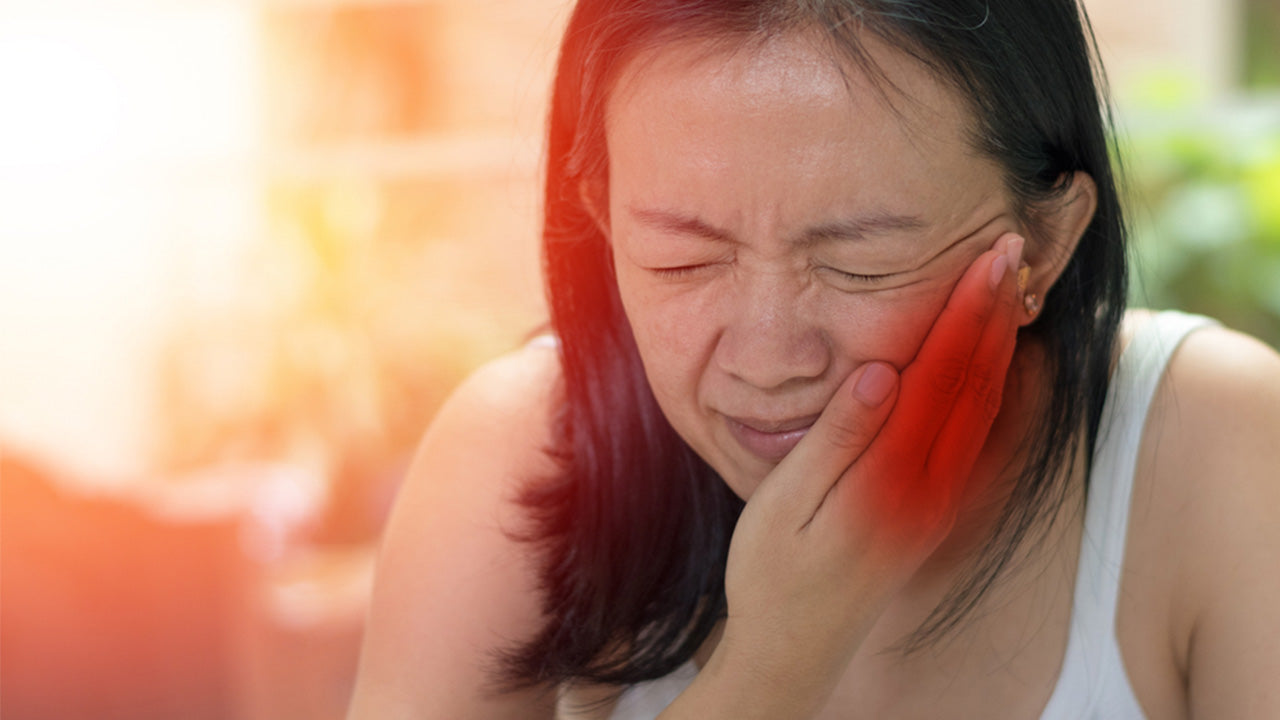Stop Grinding Your Teeth! Bruxism Explained
 By: by Amino Science
By: by Amino Science

We all know somebody who does it, or maybe you do it yourself: grinding your teeth.
It can be so bad, chronic teeth grinders can find themselves losing fillings or even parts of their teeth. People might grind so hard and so often that their ears begin to pop and their jaw begins to hurt. The medical term for the grinding and clenching of teeth is bruxism.
But what exactly causes you to grind your teeth? Well, 70% of all bruxism cases are attributed to stress and anxiety, but let’s get a more complete picture.
You might have a grinding teeth habit if you're dealing with...
- Stress
- Anxiety
- Frustration
- Tension
- Sleep apnea
- Abnormal bite
- Missing or crooked teeth
- Alcoholism
- Trauma
Or if you ingest...
- Caffeine
- Illegal drugs
- Certain prescription medications
A 2014 review of research about bruxism published in the Journal of International Oral Health stressed that different types of tooth grinding are caused by many different factors. For example, bruxism during sleep, or sleep bruxism, and bruxism during waking hours need to be studied as separate phenomena.
“There is no single factor that is responsible for bruxism,” the authors concluded. “It also is rather evident that there is no single treatment that is effective for eliminating or even reducing bruxism.”
Bruxism also refers to lip and cheek chewing, and so isn’t just relegated to teeth grinding.
Estimates of how many people suffer from teeth grinding are all over the place, according to a 2013 review of research published in the Journal of Orofacial Pain. Bruxism prevalence estimates range from 8% to 31%, with a decrease in prevalence as people age.
What We Know About Grinding Your Teeth
Researchers stress that teeth grinding is separate from physiological processes involved with how we chew our food. That is, the grinding and clenching of teeth is not a dysfunction of the jaw, even though an occlusion—a condition in which the jaw bite does not line up properly—could aggravate pain caused by bruxism.
Not only do stress factors and our personality types affect whether we may become teeth grinders, but so, too, do medical conditions, trauma, genetics, smoking, alcohol, caffeine, illicit drugs, and certain prescription medications. Sleep disorders such as snoring and sleep apnea also can cause bruxism.
Scientists have classified bruxism into two types—centric (clenching) bruxism and grinding (eccentric) bruxism. Because people with bruxism may clench their teeth for long periods of time, reduced oxygen flow to the jaw muscles often results in jaw pain and fatigue. Clenching and grinding place pressure on joints in the jaw called temporomandibular joints. The grind and release, grind and release creates spasms in the jaw and can cause face and ear pain in addition to a sore jaw. This is known as TMJ. Teeth grinding and TMJ often go hand in hand.

Bruxism Treatment
Treating the underlying causes of bruxism is the most effective long-term treatment. However, because it remains unclear how certain pathologies and bruxism interact, it can be hard to connect the symptom to the cause.
“Currently, no specific treatment exists that can stop sleep Bruxism,” concluded the authors of the 2014 review published in the International Journal of Oral Health. “But, treatments based on behavior modification such as habit awareness, habit reversal therapy, relaxation techniques, and biofeedback massed therapy may eliminate awake bruxism.”
In many cases, people grind their teeth when they are stressed and anxious. In addition to sometimes prescribing medication for the jaw pain that comes along with grinding, doctors may prescribe muscle relaxants to help prevent jaw clenching.
Doctors also may prescribe Xanax or another benzodiazepine medication for night sleeping. Be aware that these medications are highly addictive, and Xanax is not recommended for the treatment of bruxism, according to research published in Current Treatment Options in Neurology. The researchers also pointed out that clonidine has been shown in clinical trials to reduce bruxism by as much as 60%, but it can come with dangerous side effects such as low blood pressure, and also is not recommended.
Alternatively, you can try these natural methods for relieving anxiety and helping to ensure a better night’s sleep, which may subsequently relieve tooth grinding.
Valerian Root
There is some evidence to show that Valerian root improves sleep quality with no ill side effects, according to a sleep study published in the American Journal of Medicine. So, it may help light sleepers who grind at night.
Magnesium
A 2016 review of clinical research showed that magnesium is effective at treating mildly anxious people and those suffering from anxiety related to PMS. The study appeared in the Journal of Magnesium Research.
Lavender Oil
Lavender scent is known for its calming effects, and lavender oil around the temples at bedtime may help alleviate sleep problems so you get a deeper night’s sleep. However, a meta-analysis published in Evidence-Based Complementary and Alternative Medicine said there just isn’t enough published research to back claims that lavender suppresses the central nervous system.
Mouth Guard for Teeth Grinding
Dentists commonly recommend a mouth guard, or night guard if you grind your teeth when you're sleeping, to help protect the wearing down of teeth from teeth grinding. Splint and mouth guards can be constructed of hard or soft materials according to your preference and made to cover and protect your upper and lower teeth.
If grinding your teeth has already damaged your dental health to the point of tooth sensitivity or an inability to properly chew, your dentist may need to repair your teeth with porcelain crowns or caps.
Bruxism in Children
Very little is known about what causes or how to effectively treat bruxism in children. According to a 2014 meta-analysis, several studies have associated teeth grinding in children with stress and aggression. Other studies have shown that children grind when they hyperventilate.
One rather eyebrow-raising study associated teeth grinding with children who are excessively responsible or neurotic. That study, based on questionnaires given to more than 600 Brazilian school children between the ages of 7 and 10, appeared in the International Journal of Pediatric Dentistry.
Bruxism usually goes away with age, but it’s important to take your child regularly to the dentist to monitor for tooth wear and discuss possible solutions. Children who are overly anxious may benefit from cognitive behavioral talk therapy.
Natural solutions tried by parents of children who grind teeth include warm baths before bed, bedtime stories, and other relaxing activities.
Although there is no “cure” for grinding your teeth, it’s important to monitor the condition to avoid damaging the tooth enamel and other subsequent problems. Being mindful that you grind your teeth can do wonders in helping you control it. Managing stress also helps alleviate symptoms. You can also help support your overall health and improve sleep quality with a daily essential amino acid supplement.

Up to 25% off Amino
Shop NowTAGS: conditions natural cures
Join the Community
Comments (0)
Most Craveable Recipes




 833-264-6620
833-264-6620



















